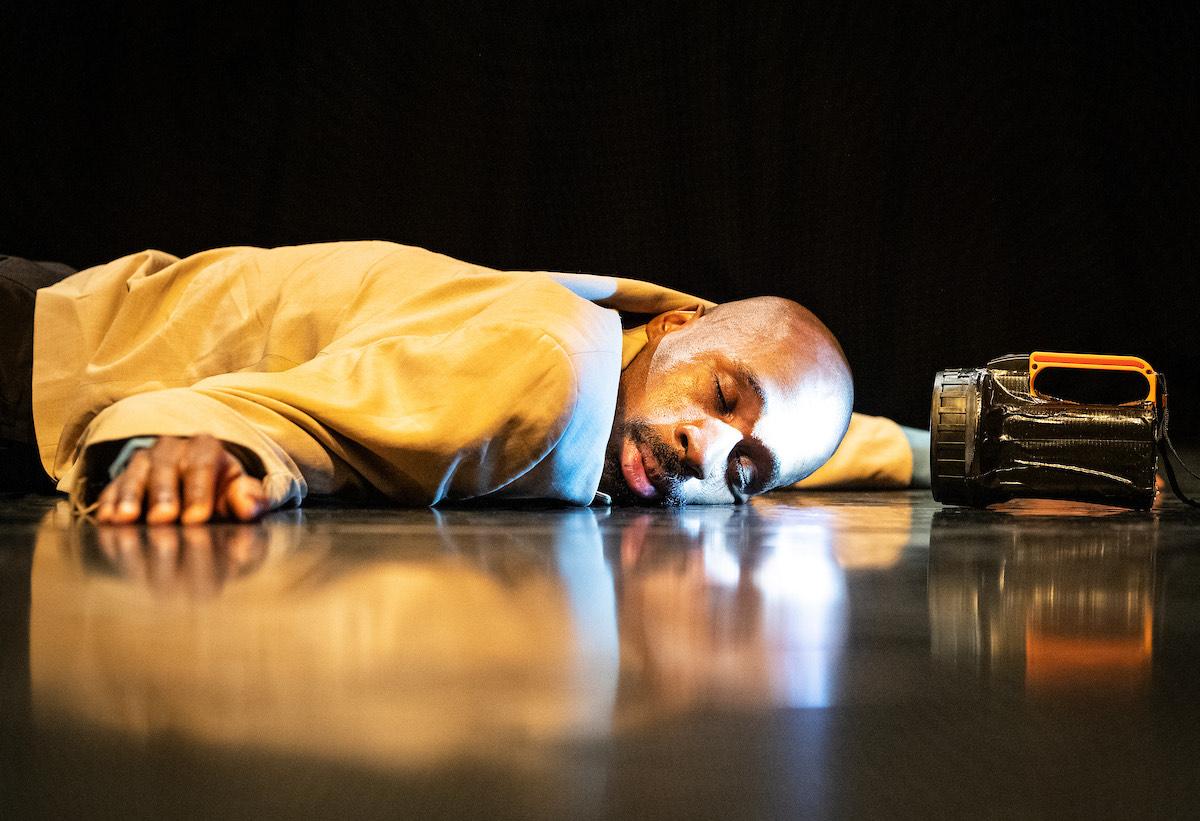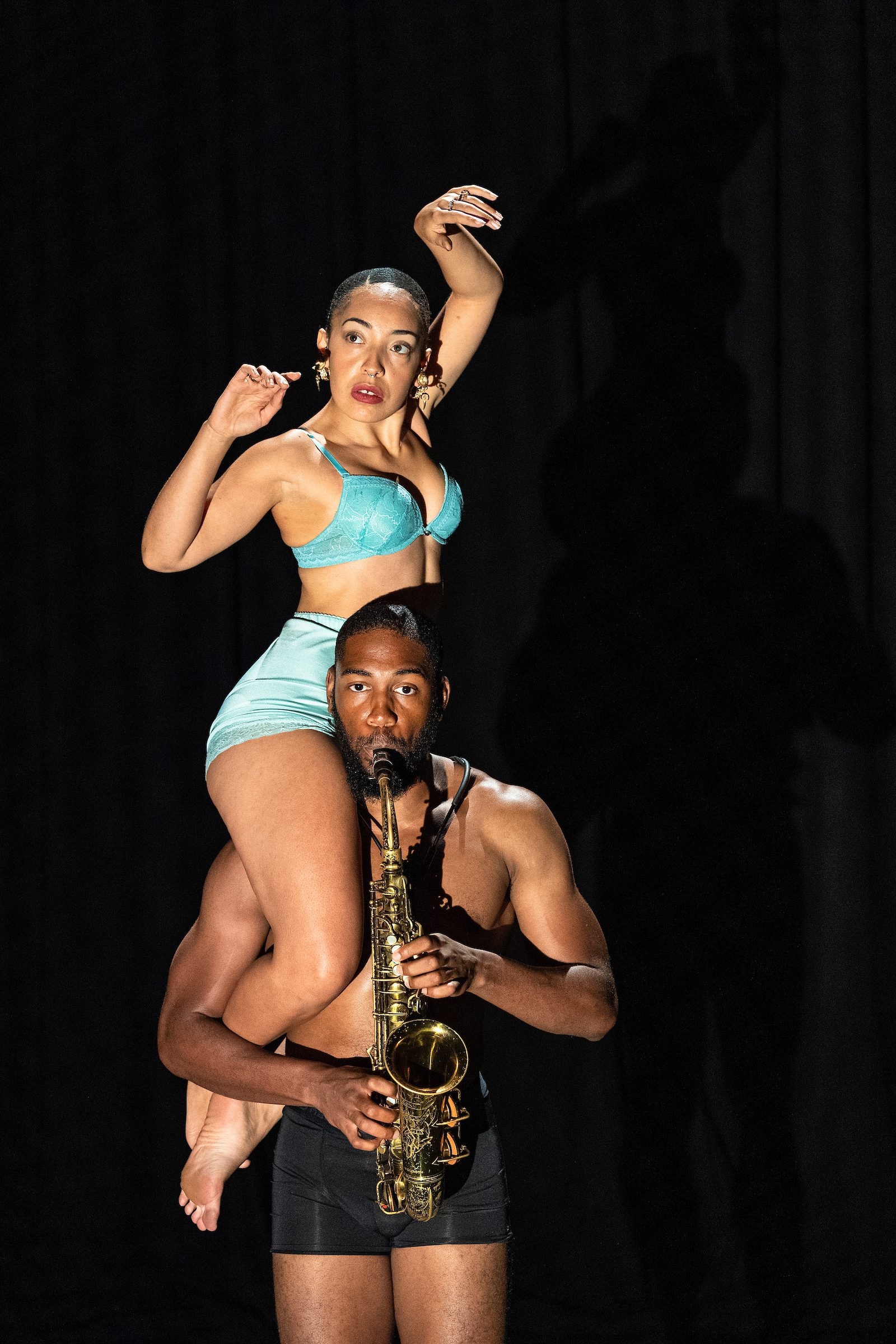Words by Katie Hagan.
Just because dance styles are in perpetual states of change doesn’t mean the model which underpins the industry is. A few weeks ago, we interviewed Gianna Burright who expressed the lack of support for independent artists.
Ahead of the critically acclaimed debut of his sensitively curated Mixed Bill, Freddie Opoku-Addaie, founder of SystemsLAB, speaks with dance art journal about the importance of giving independent artists strong opportunities for development, and the need for dance programming to be more diverse in its diversity.
Trained in a wide hybrid of dance forms, his native Ghanaian styles, contemporary, and hip-hop, Freddie is reimagining the dance curation process. His SystemsLAB, an idea borne from his three years as Dance Umbrella’s guest programmer, prides itself on using nuance (the meatier bits that do a thorough job at illuminating our understanding) to craft events which can tune unfamiliar audiences to new dance work.
Seeing the curatorial process as wholly collaborative and creative, SystemsLAB fills the void in dance programming. “For me, programming doesn’t always achieve the same care and degree of risk-taking which are integral to the curation process”, Freddie laments. “Often it forces a hierarchy of ‘Which is the best piece of the night’, when for me all of these people are doing great work.”
“Curation, or my understanding of it, recognises the similarities from one piece to the next, to add layers to or reaffirm an audience’s understanding. If you see X in the first piece, then it might highlight your view of the final work. A good curation is like a Newton’s Cradle: one knocks on the other and passes on the energy.”

“It’s not about leaping from comedy to a darker piece. In programming there is too much segregation, and this can polarise differences.”
“When it comes to curating an evening of work, it’s not just about putting a contemporary piece alongside kathak. You have to look at the nuances and shades which connect them. As a black artist there isn’t a range of work in the public eye; there is only ever one and never multiple. I always use the familiar joke that if Lenny Henry was unable to perform then another black comedian would only be there because he wasn’t.”
You’ll be pleased to know SystemsLAB is far from tokenistic. Instead of a Bassett sweet assortment of dance, each performance taps into the mind of the other. Theo Inart’s Fragility in Man Part 1 encapsulates what its eponymous title indeed says it will, and polymath Jonzi D’s Aeroplane Man embellishes Inart’s work, detailing how little we know of ourselves. The same can be said for SystemLAB’s other pieces: Becky Namgauds Exhibit and Ffion Campbell-Davies/tyroneisaacstuart’s Beyond Words. When all four works are weaved together, each bring to the fore the anxieties of the human body.
“Some dance venues get caught up in what works for them, and that is natural and fine! But this fragmentation causes problems when it comes to looking holistically at the industry.”
“When we talk of diversity it isn’t necessarily about the colour onstage or the visible disability. As a black male/female artist or a white male/female artist, we have multiple voices and not one. We need diverse curatorial rigor and alternatives which sit in the same platforms.”
Freddie is a remarkable champion of an inclusive curatorial process. His view is very much anti the whole ‘tick-box’ mentality of shoehorning a mildly hip-hop work into a predominately contemporary repertoire and proclaiming it ‘diverse’. Florals? For spring? Ground-breaking.
His reflections on the state of dance programming is reassuring. SystemsLAB in its essence provides a vital platform for independent dance artists. What is perturbing however, is how we got ourselves here in the first place.

His enviable enthusiasm, stabilised by an on-the-pulse realism, takes us to the flagging touring process. “Legacy is equally as important as opportunity. For most choreographers, tour dates are essentially theatre sector previews. How can dance shift this, so it isn’t just for the ‘established’ artists? It’s the first time their work is shown outside the studio. Then the show is forgotten. You should be able to present and tour as much as you can. Are we really taking risk or is it another buzz word?”
“With SystemsLAB, we work with artists, organisations, venues and festivals over the course of give or take a year, giving them chances to show work in various places. They can be influenced by the artists working alongside them. They receive feedback. They develop work whilst performing. We also have long conversations to see how each artist’s work can complement the other — again it’s all about the shared nuances and connections!”
From one anxiety, we move on to the next. Sorry readers, but we really need to hear it.
“We are audiences as well as artists. To sustain our ecology, we have to see art to feed work back into the system. We also need slack time and time to breathe and reflect on our process. For independent artists it is hard to find those moments. Trying to be a performer, working on the next project, securing funding; this whole system means there isn’t enough time to think about what you’re actually doing and have conversations with your peers. It’s lonely.”
“There needs to be time where there doesn’t necessarily have to be a goal to make concrete work, but time for reflection and discovery. With something like SystemsLAB you can get the most out of one piece of work, instead of doing too many different things to make ends meet.”

Freddie also explains there is little time (this is suspiciously sounding like a T.S. Eliot poem) for artists to re-invent their practice and take important risks. The mention of risk sparks my thought-process on attracting new audiences. “I think there needs to be work done in the industry first. Theatres need to open up their brilliant spaces and diversify their programmes in order to provide further opportunities.”
“Larger organisations should continue to do what they do. It works for them. But they should consider change. This means inviting the likes of SystemsLAB into their space, to offer curated work with performances and artists that are connected. What I’m saying is far from unique. Yet, programming as it stands is not representative of the diverse body of work which is out there for the taking. Who is looking for the works and where are we looking?”
“By ignoring the nuances which connect pieces of work, programmers are missing a trick. We have to reach beyond the hybridity of different styles to see the ones we haven’t discovered yet.”
SystemsLAB’s Mixed Bill is touring the UK from 6th March 2020, and will debut at The Gulbenkian, Canterbury (6thMarch) and Trinity Laban (12th— 13thMarch).
To get your tickets, please head to the Gulbenkian and Trinity Laban websites. Images: Foteini Christofilopoulou. Header image is of Jonzi D.